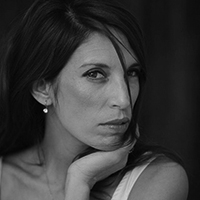The man who will ultimately determine who Israel’s next prime minister will be will get zero votes in the national elections on Tuesday. He is not running for office and no longer sits in parliament.
Reuven “Ruvi” Rivlin, elected Israel’s 10th president eight months ago, now holds a largely ceremonial office and is no longer part of the legislature. Indeed, he has few key powers—but he’s about to exercise his most important one.
A popular political hawk from Prime Minister Benjamin Netanyahu’s Likud party for some 30 years, he was a bitter rival of the incumbent Israeli leader and falls to his right. He was a fierce opponent of Israel’s withdrawal from the Gaza Strip in 2005, remains firmly against the creation of a Palestinian state, and is a staunch defender of Israel’s settlement enterprise in the West Bank. Despite his unabashed nationalism, he also may be Israel’s most vocal and highest-ranking critic of anti-Arab racism and discrimination, a province generally left to Arab and left-wing politicians. Before he was president, as speaker of the Israeli parliament, he routinely voted against bills he deemed anti-democratic and harmful to Arabs, who make up 20 percent of the Israeli population.
After the votes are counted on March 17, Rivlin will meet with the head of each party to receive his or her recommendation for prime minister, and will then decide which party leader to tap to assemble a coalition. Rivlin has already indicated that he will confer the task on the leader with the best prospects of forming a coalition and not necessarily the party with the highest number of seats.
This is good news and bad news for Netanyahu, who seeks a fourth term as Israel’s prime minister. His ruling Likud party is falling behind in the polls but he retains the best chance of assembling a stable coalition. The Likud and its biggest rival, the center-left Zionist Union party led by Isaac Herzog and Tzipi Livni, Israel’s former chief negotiator with the Palestinians, have been running neck and neck in recent weeks, but a most recent poll put the Likud at up to four seats behind its main opponent.
However, the ruling party still has more natural allies among the far-right, center-right and religious parties and should still have an easier time than the Zionist Union assembling the 61 mandates out of 120 needed for a majority.
But in the event of a close race, Rivlin is expected to call for a unity government, a nightmare scenario for Netanyahu who in a recent TV interview ruled out the option. Just three months ago Netanyahu called for early elections, claiming he was unable to govern due to ideological differences with his coalition partners, including Livni. In a unity government, Likud is set to weaken further and Netanyahu may regret the day he decided to dissolve Israel’s 19th Knesset less than two years after it took office.
In a widely quoted but unconfirmed TV report, Rivlin is said to have indicated that he would ask the would-be unity government to push through legislation on electoral reform to amend the current system by which large parties must court smaller parties, often with opposing perspectives, to cobble together a coalition. We want to avoid “turning into Italy,” Rivlin is reported to have told a group of visitors, where elections are held even more often than in Israel.
Though they are from the same party, Rivlin and Netanyahu have been bitter rivals and had a long history of locking horns. As a senior Likud politician, Rivlin was often defiant of Netanyahu, voting against bills backed by the prime minister even when coalition discipline was invoked, as was the case in 2013 when the government voted in favor of releasing convicted Palestinian terrorists as a gesture to Palestinian Authority President Mahmoud Abbas.
Rivlin was also often critical of Netanyahu and other Knesset members on the Right for remarks and actions he deemed were harmful to Israel’s democratic principles.
In turn, Netanyahu did not appoint Rivlin to a new term as Knesset speaker in the 2013 elections, a role Rivlin held twice, and did everything he could to prevent Rivlin from becoming president. But alas, the 75-year-old was much too popular, a unifying figure who drew votes from party members across the political spectrum.
“A defeat for Netanyahu!” “The end of Netanyahu?” “Netanyahu’s worst nightmare,” screamed the headlines in July when Rivlin was elected.
It has been suggested that he is now in the prime position to settle scores with Netanyahu, a move his office denies is even being considered.
While acknowledging that there have been tensions between Rivlin and Netanyahu, the director-general of the President’s Office, Harel Tubi, says the president and the prime minister have a “functional relationship” that is “sound, if not very good.”
“The difficulties in the past and their relationship in the period preceding these elections are not relevant and don’t factor into the president’s considerations. The public knows Rivlin, he is a man who knows how to set [these things] aside, especially when it comes to influencing the fate of the country,” Tubi told The Daily Beast this week.
“This transition from a politician to a president, a position of public trust devoid of political identity is not a rapid process,” Tubi says, and Rivlin has been preparing for months.
When the time comes to entrust a party leader with forming the next coalition, Rivlin’s deliberations will not remain private or hidden, and the public will know what he’s thinking, Tubi says.
Rivlin is widely seen as a person who exudes integrity and he has a reputation for defending civil liberties and minority rights and standing firmly by his beliefs, popular or not. Even those that cost him politically.
Few expected Rivlin to follow in the footsteps of his predecessor Shimon Peres, a Nobel Peace Prize winner and a staunch supporter of peace talks, who used his seven years in office to elevate the presidency—a largely symbolic role—to heightened prominence both in Israel and across the world.
But in just under a year, Rivlin has gained much publicity for emerging as a key advocate of Arab-Jewish rapprochement and coexistence. He regularly meets with Arab leaders, visits Arab-majority cities in Israel, and speaks passionately and frequently against displays of anti-Arab racism, which he’s termed an Israeli “disease.”
“It was a harsh thing to say,” admits Tubi. “It was provocative, but it was a call to action. It forced the public to look in the mirror and say ‘We are starting a process’ [to reverse this].”
“He sees the rift between Jews and Arabs in Israeli society as a rift that must be healed and if it’s not taken care of, then it expands and expands until it reaches levels of racism and incitement, and this endangers all of Israeli society. This is a sort of mission [for him],” he says.
This mission has earned him fierce criticism—and much admiration.
As part of his advocacy work, he’s teamed up with an Israeli-Arab boy for a campaign against bullying, canceled the appearance at an event of a popular Israeli singer over anti-Arab lyrics, personally called the parents of a young Druze university student who was attacked in Jerusalem by a group of Jewish Israelis who heard him speaking Arabic, and most recently offered a prize to the Israeli soccer team that does the most to eradicate violence and anti-Arab racism.
Four months ago, days after a Palestinian man ran over pedestrians in Jerusalem killing two people including a 3-month-old girl, Rivlin attended a memorial for the 1956 Kfar Kassem massacre in which 49 Arab-Israeli men, women and children were shot dead by Israeli Border Police. At the ceremony, Rivlin called the incident a “terrible crime,” asked for forgiveness and urged an end to the cycle of violence. He was the first Israeli official to ever attend the annual event and was slammed for it, in part for seemingly linking the massacre and the Jerusalem terror attack, which preceded several such attacks over the following months, bringing Jewish-Arab tensions to unprecedented heights.
To those in the Arab community, the gesture had promise.
“The visit was seen as the beginning of a maturity process for the Israeli Jewish community,” says Mohammad Darawshe, the director of equality and shared society program at the Givat Haviva Center, a leading NGO working for co-existence between Arabs and Jews.
“It was seen as him having enough of a solid Jewish identity to understand that Israel is not just a state for Jews, but also for its Arab community,” he says.
Lamenting the fact that Rivlin has no executive powers to translate his approach into policy, Darawshe says that at a time of disastrous political relations between Jews and Arabs, “Israelis like Rivlin act as a counter to radical right-wingers and those who don’t want to live together.”
Rivlin’s right-wing bona fides, like his opposition to a Palestinian state, don’t seem to work against him either. “He is seen as even more sincere,” says Darawshe. “His willingness to talk to people who do not share his vision works in his favor. There is no problem with someone holding a right-wing perception as long as he wants to sit and talk.”
Dialogue is Rivlin’s modus operandi and forte, it seems. Less than a week before elections, the president summoned over 100 Israeli non-voters to his official residence and urged them to reconsider.
“A low electoral turnout is an incubator for social deterioration. It only widens the dangerous gap between the elected officials and the public; it empowers extremist, violent groups, which endanger all of us,” Rivlin charged. “Despair and apathy, are not the solution. My friends, go and vote!””
This last sentiment is being echoed by party leaders across the spectrum, but especially by Netanyahu who—alarmed by the recent polls—launched a media blitz late last week to warn of the imminent demise of the State of Israel should anyone but the Likud party lead the next government. He’s also taken on an increasingly paranoid tone, claiming a “huge international effort”was under way to unseat him.
At a right-wing rally in Tel Aviv Sunday night attended by tens of thousands, Netanyahu warned of the rise of a left-wing government supported by “fortunes funneled from abroad” and the Arab parties who form the Joint (Arab) List.
With a country divided and talk of foreign plots, whatever happens on Tuesday, it seems Rivlin may be the least of Netanyahu’s problems.






